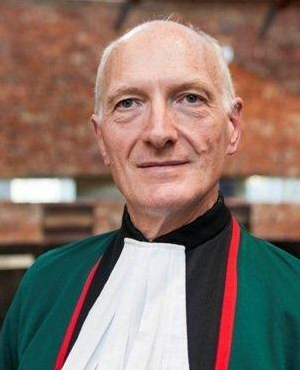
Edwin Cameron
Justice
Edwin Cameron completed his schooling at Pretoria Boys’ High School and attended Stellenbosch University on the Anglo-American Open Scholarship, where he obtained a BA Law and an Honours degree in Latin, both cum laude. He lectured in Latin and Classical Studies before studying at Oxford on a Rhodes Scholarship. There he obtained a BA in Jurisprudence and the BCL, with honours and prizes. Cameron received his LLB from the University of South Africa, and received the medal for the best law graduate.
Cameron practised at the Johannesburg Bar from 1983 to 1994. From 1986 he was a human rights lawyer based at the University of the Witwatersrand’s Centre for Applied Legal Studies (CALS), where he was awarded a personal professorship in law. His practice included labour and employment law; defence of ANC fighters charged with treason; conscientious and religious objection; land tenure and forced removals; and gay and lesbian equality. From 1988 he advised the National Union of Mineworkers on AIDS/HIV, and helped draft and negotiate the industry’s first comprehensive AIDS agreement with the Chamber of Mines. While at CALS, he drafted the Charter of Rights on AIDS and HIV, co-founded the AIDS Consortium (a national affiliation of non-governmental organizations working in AIDS), which he chaired for its first three years, and founded and was the first director of the AIDS Law Project. He oversaw the gay and lesbian movement’s submissions to the Kempton Park negotiating process. This, with other work, helped secure the express inclusion of sexual orientation in the South African Constitution. In September 1994, he was awarded silk (senior counsel status). President Mandela appointed him an acting judge and later a judge of the High Court. In 1999/2000 he served for a year as an Acting Justice at the Constitutional Court. In 2000 he was appointed a Judge of Appeal in the Supreme Court of Appeal. He was appointed a Justice of the Constitutional Court in 2008.
